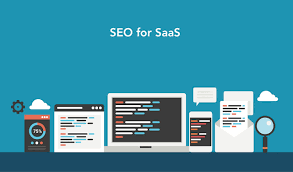The Power of Python in SEO
The Power of Python in SEO
Python, a versatile and powerful programming language, has found its way into the world of Search Engine Optimization (SEO) with remarkable impact. With its simplicity, readability, and extensive libraries, Python has become a valuable tool for SEO professionals looking to streamline processes, automate tasks, and extract valuable insights from data.
Automation and Efficiency
One of the key advantages of using Python in SEO is its ability to automate repetitive tasks. From crawling websites for data extraction to generating sitemaps and monitoring website performance, Python scripts can handle these tasks efficiently and accurately. This automation not only saves time but also reduces the margin for human error.
Data Analysis and Visualization
Python’s rich ecosystem of libraries such as Pandas and Matplotlib enables SEO specialists to analyse large datasets with ease. By processing data from tools like Google Analytics or Search Console, Python can uncover valuable insights about website performance, user behaviour, keyword rankings, and more. Visualizing this data through graphs and charts helps in making informed decisions for SEO strategies.
Technical SEO Audits
Python can be utilised to conduct comprehensive technical SEO audits by examining website structure, HTML elements, page speed metrics, and other critical aspects that impact search engine rankings. With custom scripts written in Python, SEO professionals can identify issues quickly and implement necessary fixes to improve website health and visibility.
Natural Language Processing (NLP)
Another area where Python shines in SEO is Natural Language Processing (NLP). By leveraging libraries like NLTK or spaCy, SEO experts can analyse content quality, perform sentiment analysis on user reviews or social media mentions, and even develop AI-powered chatbots for improved user engagement—all contributing to enhancing overall search performance.
Conclusion
In conclusion, Python has revolutionized the way SEO tasks are performed by offering automation capabilities, advanced data analysis tools, technical auditing solutions, and NLP functionalities—all within a single programming language. Embracing Python in your SEO workflow can lead to increased efficiency, better decision-making based on data-driven insights, and ultimately improved search engine rankings for your website.
Exploring Python and SEO: 25 Common Questions Answered
- Can I do SEO on my own?
- How to create a search engine like Google in Python?
- Can Python be used for optimization?
- Can I do SEO on my own website?
- Which language is good for SEO?
- Is SEO for free?
- How to make an SEO tool with Python?
- What coding is used for SEO?
- What is technical SEO for a website?
- How Python is used in marketing?
- How to automate SEO with Python?
- How do I automate SEO keyword clustering?
- What is SEO in marketing?
- What is SEO in programming?
- How to use Python for marketing?
- How do you cluster keywords in Python?
- What is automation in SEO?
- How to code search engine in Python?
- What does the term search engine optimization SEO mean?
- How do you automate keyword research?
- What is the search engine for Python code?
- How to automate SEO keyword clustering by search intent with Python?
- What is SEO automation?
- What does technical SEO include?
- What is SEO and how it works?
Can I do SEO on my own?
For those wondering whether they can handle SEO independently, the answer is yes, it is possible to do SEO on your own. With the right resources, dedication, and willingness to learn, individuals can certainly take on various aspects of SEO for their website. By educating oneself on best practices, utilising online tools and guides, and staying updated on search engine algorithms, DIY SEO efforts can yield positive results. However, it’s important to acknowledge that SEO is a complex and ever-evolving field that requires time and expertise. For those with limited experience or time constraints, seeking assistance from professional SEO services may be a more efficient route to achieving long-term success in improving website visibility and ranking.
How to create a search engine like Google in Python?
Creating a search engine like Google in Python is a complex and ambitious project that requires a deep understanding of information retrieval, web crawling, indexing, and ranking algorithms. To embark on this endeavour, one would need to break down the process into distinct stages: crawling the web to collect data, building an index of web pages and their content, implementing algorithms to rank search results based on relevance and popularity, and designing a user-friendly interface for querying and displaying results. Utilising libraries such as BeautifulSoup for web scraping, creating inverted indices for efficient searching, and implementing PageRank or similar algorithms for result ranking are essential steps in developing a search engine akin to Google using Python.
Can Python be used for optimization?
When it comes to Search Engine Optimization (SEO), Python can indeed be a powerful ally. Python’s flexibility and extensive libraries make it a valuable tool for automating tasks, analysing data, conducting technical audits, and even implementing Natural Language Processing (NLP) techniques to enhance content quality and user engagement. By leveraging Python in SEO strategies, professionals can streamline processes, gain valuable insights from data analysis, and ultimately improve website visibility and search engine rankings effectively.
Can I do SEO on my own website?
Navigating the realm of SEO for your own website can be a challenging yet rewarding endeavour. While it is indeed possible to undertake SEO efforts independently, it requires a solid understanding of search engine algorithms, keyword research, content optimisation, and technical aspects of website structure. By familiarising yourself with best practices and leveraging tools like Google Analytics and keyword research tools, you can certainly make strides in improving your website’s visibility and rankings. However, the dynamic nature of SEO requires continuous learning and adaptation to stay ahead in the digital landscape. Seeking guidance from reliable sources and staying updated on industry trends can significantly enhance your DIY SEO journey for your website.
Which language is good for SEO?
When it comes to Search Engine Optimization (SEO), Python stands out as a highly effective language for enhancing website visibility and performance. Its versatility and robust libraries make it a popular choice among SEO professionals for automating tasks, analysing data, conducting technical audits, and leveraging natural language processing capabilities. Python’s efficiency in handling complex SEO processes makes it a preferred language for those looking to streamline their strategies and drive better results in the competitive online landscape.
Is SEO for free?
When it comes to the question of whether SEO is free, the answer is not a simple yes or no. While it is true that you do not have to pay for organic search engine visibility itself, implementing effective SEO strategies often requires investment in terms of time, resources, and expertise. Creating high-quality content, conducting keyword research, optimizing website structure, and building backlinks are all essential aspects of SEO that may incur costs. Additionally, hiring SEO professionals or investing in tools and software to aid in the optimization process can also contribute to the overall expenses associated with SEO efforts. Therefore, while organic search traffic is technically free, achieving significant results through SEO typically involves a strategic investment to yield long-term benefits for your online presence.
Creating an SEO tool with Python involves leveraging the language’s robust capabilities to automate various aspects of search engine optimisation. To start, you can utilise Python libraries like Requests for fetching web data, Beautiful Soup for parsing HTML content, and Pandas for data manipulation. By combining these tools with your custom algorithms, you can develop features such as website crawling, keyword analysis, backlink monitoring, and performance reporting. Building a user-friendly interface using frameworks like Flask or Django can enhance the tool’s usability. With Python’s flexibility and extensive libraries, crafting a bespoke SEO tool tailored to specific needs becomes achievable for those willing to delve into the world of programming and SEO intricacies.
What coding is used for SEO?
When it comes to Search Engine Optimization (SEO), Python is a popular coding language used by many professionals in the field. Python’s versatility and extensive libraries make it an ideal choice for automating tasks, analysing data, conducting technical audits, and even implementing Natural Language Processing (NLP) techniques for content analysis. Its simplicity and readability enable SEO specialists to write efficient scripts that enhance website performance, user experience, and overall search visibility. By leveraging Python coding in SEO practices, professionals can streamline processes and gain valuable insights to drive successful digital marketing strategies.
What is technical SEO for a website?
Technical SEO for a website refers to the optimisation of the website’s infrastructure and backend elements to enhance its visibility and crawlability by search engines. It involves improving factors such as site speed, mobile-friendliness, URL structure, metadata, indexing, and schema markup. By focusing on technical SEO aspects, webmasters ensure that search engine bots can efficiently crawl and index their site, leading to better search engine rankings and overall user experience. Implementing technical SEO best practices is essential for ensuring that a website is well-optimised for search engines and capable of reaching its target audience effectively.
How Python is used in marketing?
Python is a versatile programming language that plays a crucial role in modern marketing strategies. In the realm of SEO, Python is utilised for automating tasks such as data extraction, website crawling, and performance monitoring, leading to increased efficiency and accuracy in analysing website metrics. Python’s extensive libraries facilitate data analysis and visualization, enabling marketers to derive valuable insights from large datasets obtained from tools like Google Analytics. Moreover, Python’s capabilities in Natural Language Processing (NLP) empower marketers to assess content quality, conduct sentiment analysis on customer feedback, and enhance user engagement through AI-driven chatbots. Overall, Python’s flexibility and functionality make it a valuable asset in shaping successful marketing campaigns by streamlining processes and leveraging data-driven decision-making.
How to automate SEO with Python?
Automating SEO tasks with Python involves leveraging the language’s powerful scripting capabilities to streamline various aspects of search engine optimisation. By writing custom Python scripts, SEO professionals can automate processes such as website crawling, data extraction, keyword analysis, content optimization, and reporting. These scripts can interact with SEO tools and APIs to gather data efficiently, perform routine tasks automatically, and generate insights that inform strategic decisions. With Python’s flexibility and robust libraries, automating SEO not only saves time and effort but also enables practitioners to focus on high-impact activities that drive organic traffic and improve search rankings effectively.
How do I automate SEO keyword clustering?
Automating SEO keyword clustering can greatly streamline the process of grouping related keywords for more effective content planning and optimisation. By leveraging Python scripts and tools, SEO professionals can automate the task of clustering keywords based on semantic similarity, search intent, or other relevant factors. Using natural language processing techniques, Python can analyse large sets of keywords and categorise them into clusters, allowing for better organisation and targeting in SEO strategies. This automation not only saves time but also ensures a more structured approach to keyword research and implementation, ultimately enhancing the overall effectiveness of SEO campaigns.
What is SEO in marketing?
In the realm of digital marketing, SEO, which stands for Search Engine Optimization, plays a pivotal role in enhancing a brand’s online visibility and driving organic traffic to its website. SEO encompasses a range of strategies and techniques aimed at improving a website’s search engine rankings, making it more likely to appear prominently in search results when users enter relevant queries. By optimising factors such as keywords, content quality, backlinks, and site structure, marketers can attract qualified leads and increase brand awareness through improved search engine visibility. In essence, SEO in marketing is about aligning your online presence with search engine algorithms to ensure that your target audience can easily discover and engage with your brand’s offerings.
What is SEO in programming?
In the realm of programming, SEO, which stands for Search Engine Optimization, refers to the practice of enhancing a website’s visibility and ranking on search engine results pages. Specifically in Python SEO, this involves using the Python programming language to automate tasks, analyse data, conduct technical audits, and improve content quality—all with the goal of boosting a website’s performance in search engine rankings. By harnessing Python’s capabilities for automation, data processing, and natural language analysis, SEO professionals can optimise websites effectively to attract more organic traffic and improve their online presence.
How to use Python for marketing?
Utilising Python for marketing purposes offers a myriad of benefits, particularly in the realm of Search Engine Optimization (SEO). By harnessing Python’s automation capabilities, marketers can streamline tasks such as data analysis, content generation, and performance tracking. Python scripts can be employed to crawl websites for SEO insights, analyse marketing campaign data, and even create personalised marketing messages based on user behaviour patterns. Furthermore, Python’s versatility allows marketers to develop custom tools and solutions tailored to their specific needs, enabling them to enhance efficiency, target audiences more effectively, and ultimately drive better results in their marketing efforts.
How do you cluster keywords in Python?
When it comes to clustering keywords in Python for SEO purposes, one commonly employed method is through the use of natural language processing (NLP) techniques. By leveraging libraries such as NLTK or spaCy, SEO professionals can preprocess and vectorize keywords to identify similarities and group them into clusters based on semantic relationships. These clusters help in organising keywords into meaningful groups, allowing for more targeted content creation, improved keyword targeting strategies, and enhanced overall search engine optimisation efforts. Python’s flexibility and powerful NLP capabilities make it a valuable tool for efficiently clustering keywords to optimise website content for better search visibility.
What is automation in SEO?
Automation in SEO refers to the process of using tools and scripts, such as those written in Python, to streamline and simplify repetitive tasks involved in search engine optimisation. By automating various aspects of SEO, such as keyword research, content optimisation, link building, and performance monitoring, professionals can save time and effort while ensuring consistent and efficient execution of strategies. Automation in SEO not only enhances productivity but also allows for more accurate data analysis, quicker identification of issues, and timely implementation of improvements to boost website visibility and rankings on search engine results pages.
How to code search engine in Python?
Developing a search engine in Python involves a complex process that requires a deep understanding of information retrieval, data structures, and algorithms. To code a search engine in Python, one typically starts by crawling and indexing web pages to build a searchable database of content. This involves parsing HTML content, extracting relevant text and metadata, and storing this information in an efficient data structure like an inverted index. Implementing ranking algorithms such as TF-IDF or PageRank is crucial for returning relevant search results to users. Additionally, incorporating features like query processing, relevance ranking, and result presentation are essential for creating a functional search engine in Python. By following best practices in information retrieval and leveraging Python’s capabilities for data processing and manipulation, developers can create a customised search engine tailored to specific requirements.
What does the term search engine optimization SEO mean?
Search Engine Optimization (SEO) refers to the practice of enhancing a website’s visibility and ranking on search engine results pages (SERPs) organically. It involves various strategies and techniques aimed at improving the quality and relevance of a website’s content, ensuring that it aligns with search engine algorithms. By optimising elements such as keywords, meta tags, backlinks, and site structure, SEO aims to attract more organic traffic to a website, ultimately increasing its chances of being discovered by users searching for relevant information or products online. In essence, SEO is about making your website more search engine-friendly to improve its visibility and reach a wider audience.
How do you automate keyword research?
Automating keyword research in Python for SEO involves leveraging various tools and libraries to streamline the process. By writing custom scripts or using existing packages like BeautifulSoup for web scraping and requests for fetching data, SEO professionals can automate tasks such as extracting keyword suggestions from search engines, analysing competitor keywords, and identifying trending topics. Additionally, utilising natural language processing (NLP) libraries such as NLTK or spaCy can aid in categorising keywords based on relevance and search intent. Through automation, keyword research becomes more efficient, allowing SEO specialists to focus on implementing strategic insights to enhance website visibility and search engine rankings.
What is the search engine for Python code?
When it comes to searching for Python code snippets, one of the most popular and widely used search engines among developers is “PyPI” (Python Package Index). PyPI serves as a comprehensive repository of Python packages and libraries, allowing users to discover, download, and integrate code functionalities seamlessly into their projects. By leveraging PyPI’s vast collection of resources, developers can expedite their coding process, access ready-made solutions, and enhance the functionality of their Python applications with ease.
How to automate SEO keyword clustering by search intent with Python?
Automating SEO keyword clustering by search intent with Python involves leveraging the language’s powerful libraries and functionalities to streamline the process. By utilising Python scripts, SEO professionals can categorise keywords based on user intent, such as informational, navigational, or transactional queries. Through Natural Language Processing (NLP) techniques and machine learning algorithms, Python can analyse search queries and website content to identify patterns and group keywords accordingly. This automation not only saves time but also ensures that SEO strategies align with user intent, leading to more targeted and effective keyword optimisation for improved search engine visibility.
What is SEO automation?
SEO automation refers to the process of using tools, scripts, or software to streamline and simplify various search engine optimization tasks. In the context of Python SEO, automation plays a crucial role in efficiently handling repetitive and time-consuming activities such as website crawling, data extraction, keyword research, content optimization, and performance monitoring. By leveraging Python scripts for SEO automation, professionals can save valuable time, reduce manual errors, and focus on strategic decision-making based on the insights derived from automated processes. This approach not only enhances productivity but also allows for more effective management of SEO campaigns to improve website visibility and search engine rankings.
What does technical SEO include?
Technical SEO encompasses a range of critical aspects that focus on improving a website’s infrastructure and backend elements to enhance its search engine visibility and performance. This includes tasks such as optimising website speed and performance, ensuring proper indexing of web pages by search engines, implementing structured data markup for rich snippets, fixing crawl errors, enhancing site architecture for better navigation, addressing duplicate content issues, managing redirects effectively, and adhering to best practices for mobile-friendliness and website security. In essence, technical SEO involves the fine-tuning of various technical elements to ensure that a website is easily crawlable, indexable, and user-friendly, ultimately contributing to higher search engine rankings and improved user experience.
What is SEO and how it works?
Search Engine Optimization (SEO) is the practice of enhancing a website’s visibility and ranking on search engine results pages organically. SEO works by optimising various aspects of a website, including content, keywords, meta tags, and backlinks, to make it more relevant and authoritative in the eyes of search engines like Google. By improving these elements and following best practices, websites can attract more organic traffic from users searching for related topics or products. SEO involves both on-page and off-page strategies to ensure that a website is well-optimised for search engines, ultimately leading to increased visibility, higher rankings, and improved online presence.




